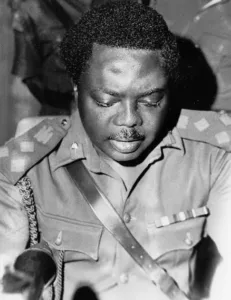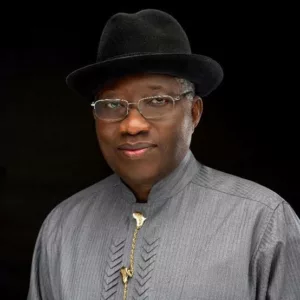The Past Heads Of State/presidents From 1960 In Nigeria Till date

This is a full list of the heads of state of Nigeria, from independence in 1960 to the present day. The current constitution of Nigeria has the president of Nigeria as the head of state and government.
Heads Of State Of Nigeria
Dr. Nnamdi B. Azikiwe
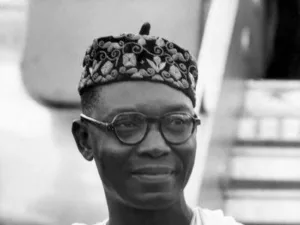
Nnamdi Azikiwe
- 1st June 1963 – Jan 15th 1966 (1st Republic)
Nnamdi Benjamin Azikiwe, GCFR PC (16 November 1904 – 11 May 1996), widely known as “Zik“, was a Nigerian statesman, revolutionary and political leader who served as the 3rd governor-general of Nigeria between the year 1960 and 1963 and the 1st president of Nigeria during the First Nigerian Republic which existed from 1963 to 1966.
Considered a driving force behind the nation’s independence, Dr. Nnamdi B. Azikiwe is known as the “father of Nigerian nationalism”
Maj. Gen. Johnson Aguiyi Ironsi
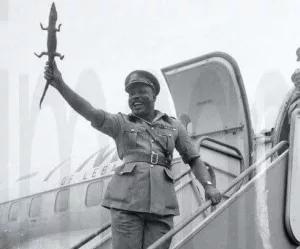
Johnson Aguiyi Ironsi
- Jan. 15th 1966 – Jul. 29th 1966
Johnson Thomas Umunnakwe Aguiyi-Ironsi GCFR MVO MBE (3 March 1924 – 29 July 1966) was a Nigerian military officer who was the first military head of state of Nigeria. He seized power during the ensuing chaos after the 15 January 1966 military coup.
Hot Posts
Gen. Yakubu Gowan
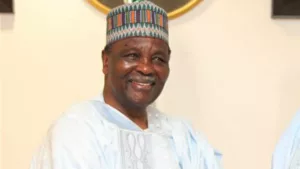
Gen. Yakubu Gowan
- July 29th 1966 – July 29th 1975
Yakubu Dan-Yumma Gowon GCFR (born 19 October 1934) widely referred to as “Jack” is a a retired Nigerian army general and military leader.
As head of state of Nigeria, Gowon presided over a controversial Nigerian Civil War and delivered the famous “no victor, no vanquished” speech at the war’s end to promote healing and reconciliation.
The Nigerian Civil War is one of the deadliest in modern history, with some accusing Gowon of crimes against humanity and genocide.
Gowon maintains that he committed no wrongdoing during the war and that his leadership saved the country.
Also: Incredible Zigi Biography: Age, Net Worth, Parents, Spouse, Instagram, Height
Gen. Murtala Mohammed
- July 29th 1975– Feb. 13th 1976
Murtala Ramat Muhammed GCFR; (8 November 1938 – 13 February 1976) was a Nigerian general who led the 1966 Nigerian counter-coup in overthrowing the Johnson Aguiyi-Ironsi military regime and featured prominently during the Nigerian Civil War and thereafter ruled over Nigeria from 29 July 1975 until his assassination on 13 February 1976.
This period in Nigerian history, from the Northern counter-coup victory to Murtala’s death, is commonly associated with the institutionalization of the military in politics.
Chief Olusegun Aremu Obasanjo
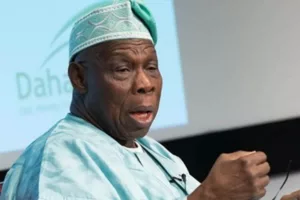
Chief Olusegun A. Obasanjo
- Feb. 13th 1975 – Sep. 30th 1979
Chief Olusegun Matthew Okikiola Ogunboye Aremu Obasanjo GCFR (born 5 March 1937) is a Nigerian retired military General and statesman who ruled as Nigeria’s head of state from 1976 to 1979.
Alhaji Shehu Shagari
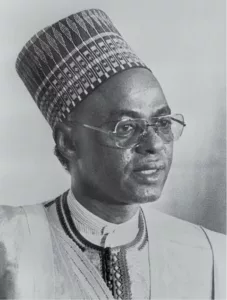
Alhaji Shehu Shagari
- Oct. 1st 1979 – Dec. 30th 1983 (2nd Republic)
Shehu Usman Aliyu Shagari GCFR (born February 25, 1925) was a Nigerian politician who was the first and only President of Nigeria’s Second Republic (1979–1983), after the transfer of power by military head of state General Olusegun Obasanjo in 1979 giving rise to the Second Nigerian Republic.
Gen. Muhammadu Buhari
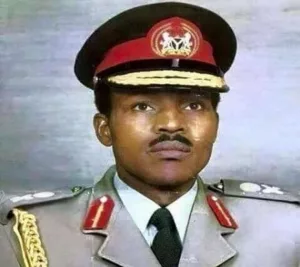
Gen. Muhammadu Buhari
- Dec. 13th 1983 – Aug. 27th 1985
Muhammadu Buhari GCFR (born 17 December 1942) is retired Nigerian army major general, he served as the country’s military head of state from 31 December 1983 to 27 August 1985, after taking power from the Shehu Shagari civilian government in a military coup d’état
Gen. Ibrahim B. Babangida
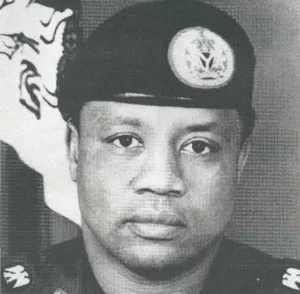
Gen. Ibrahim B. Babangida
- Aug. 27th 1985 – Aug. 26th 1993 (3rd Republic) Abortive
Ibrahim Badamasi Babangida GCFR (born 17 August 1941) is a Nigerian retired general and statesman who served as military president of Nigeria from 1985 until his resignation in 1993.
He rose through the ranks to serve from 1984 to 1985 as Chief of Army Staff, going on to orchestrate his seizure of power in a coup d’état against Muhammadu Buhari.
Chief Ernest Shonekan
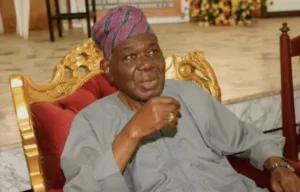
Chief Ernest Shonekan
- Aug. 26th 1993 – Nov. 17th 1993
Chief Ernest Adegunle Oladeinde Shonekan GCFR (born 9 May 1936) was a Nigerian lawyer and statesman who ruled as the interim head of state of Nigeria from 26 August 1993 to 17 November 1993. He was titled Abese of Egbaland from 1981 (in addition to a variety of other chieftaincy titles).
Also: 8 Interesting Facts About The Yoruba People
Gen. Sani Abacha
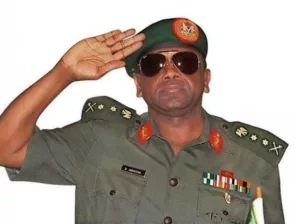
Gen. Sani Abacha
- Nov. 17th 1993 – June 8th 1998
Sani Abacha GCFR (Born 20 September 1943) was a Nigerian Army General and politician who served as the military head of state after seizing power in 1993 until his death in 1998. Abacha’s seizure of power was the last successful coup d’état in Nigerian military history.
Gen. Abdulsalami Abubakar
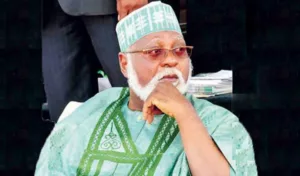
Gen. Abdulsalami Abubakar
- June 8th 1998 – May 29th 1999
Abdulsalami Abubakar GCFR (born 13 June 1942) was a Nigerian statesman and retired Nigerian army general who ruled as the military head of state of Nigeria from 1998 to 1999.[1] He was also Chief of Defence Staff from 1997 to 1998. He succeeded General Sani Abacha upon the latter’s death.
Chief Olusegun A. Obasanjo

Chief Olusegun A. Obasanjo
- May 29th 1999 – May 29th 2007 (4th Republic)
Chief Olusegun A. Obasanjo GCFR (born 5 March 1937) is from Abeokuta, South-West Nigeria. He is a Nigerian retired military General and statesman who served as Nigeria’s head of state from 1976 to 1979 and was later sworn in as president of Nigeria from 1999 to 2007.
Alhaji Umaru Musa Yar’Adua
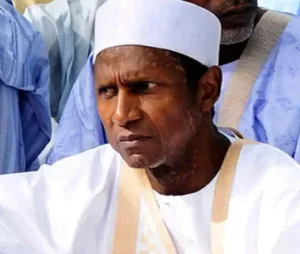
Alhaji Umaru Musa Yar’Adua
- May 29th 2007 – 2010
Umaru Musa Yar’Adua GCFR (Born 16 August 1951) was a Nigerian politician who served as the president of Nigeria from 2007 to 2010. He was declared the winner of the Nigerian presidential election held on 21 April 2007, and was sworn in on 29 May 2007.
Goodluck Ebele Jonathan
- May 2010 – May 2015
Goodluck Ebele Azikiwe Jonathan GCFR GCON (born 20 November 1957) is a Nigerian politician who served as the president of Nigeria from 2010 to 2015.
He lost the 2015 presidential election to former military head of state General Muhammadu Buhari and was the first incumbent president in Nigerian history to concede defeat in an election and therefore allow for a peaceful transition of power.
Gen. Muhammadu Buhari
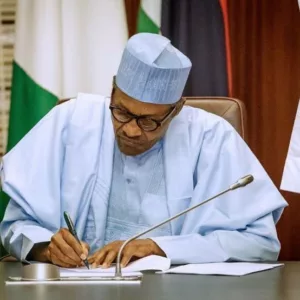
Muhammadu Buhari (Formal President Of Nigeria)
- May 2015 to 2023
Bola Ahmed Tinubu
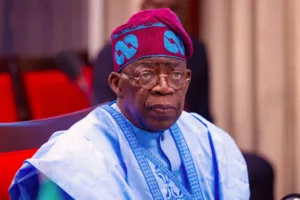
Bola Ahmed Tinubu
- 2023 till date
Material source: Wikipedia





![Top 10 Highest Paid Artists In Nigeria [2024]](https://www.mp3xclusive.ng/wp-content/uploads/2024/04/Top-10-Highest-Paid-Artists-In-Nigeria.png)
